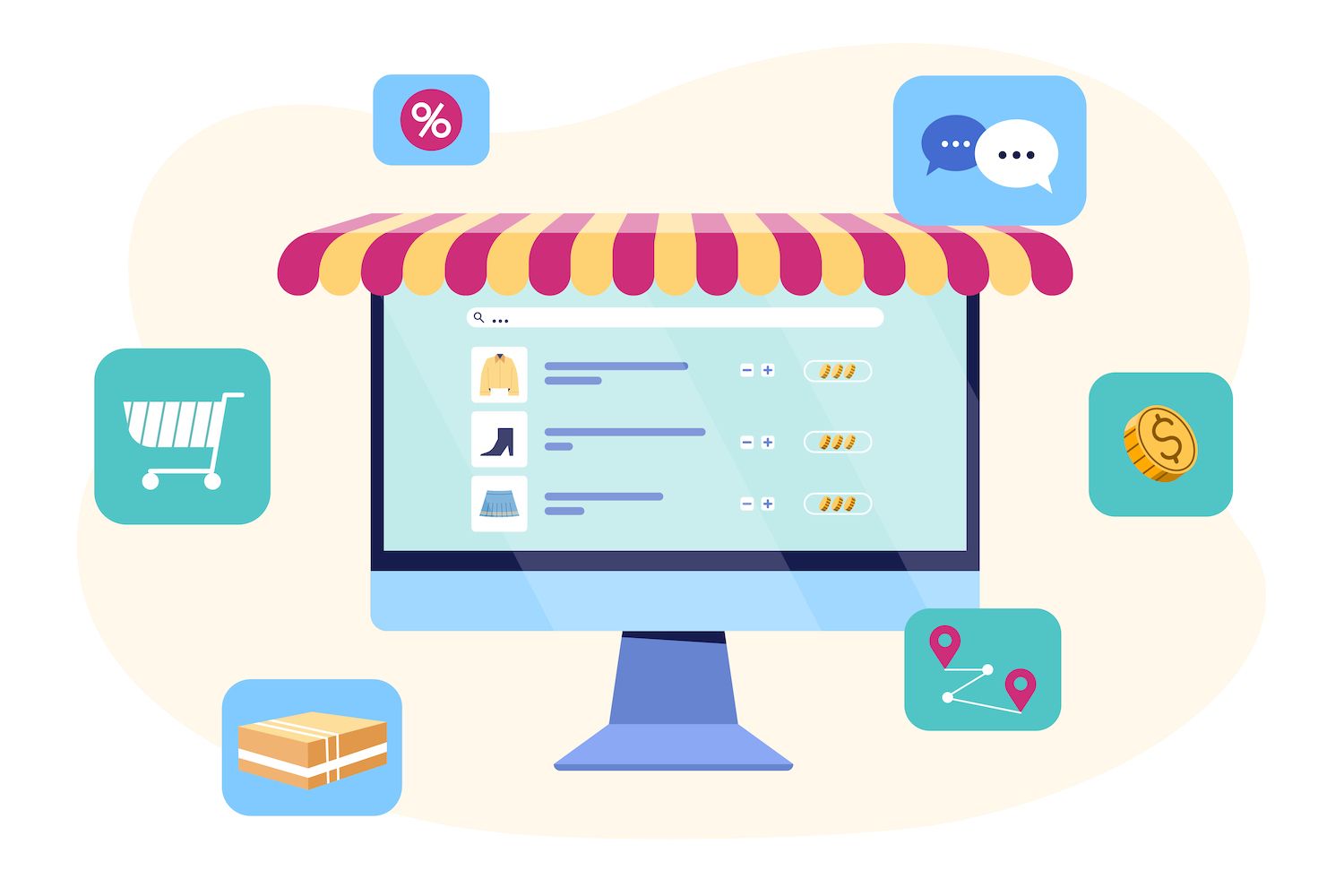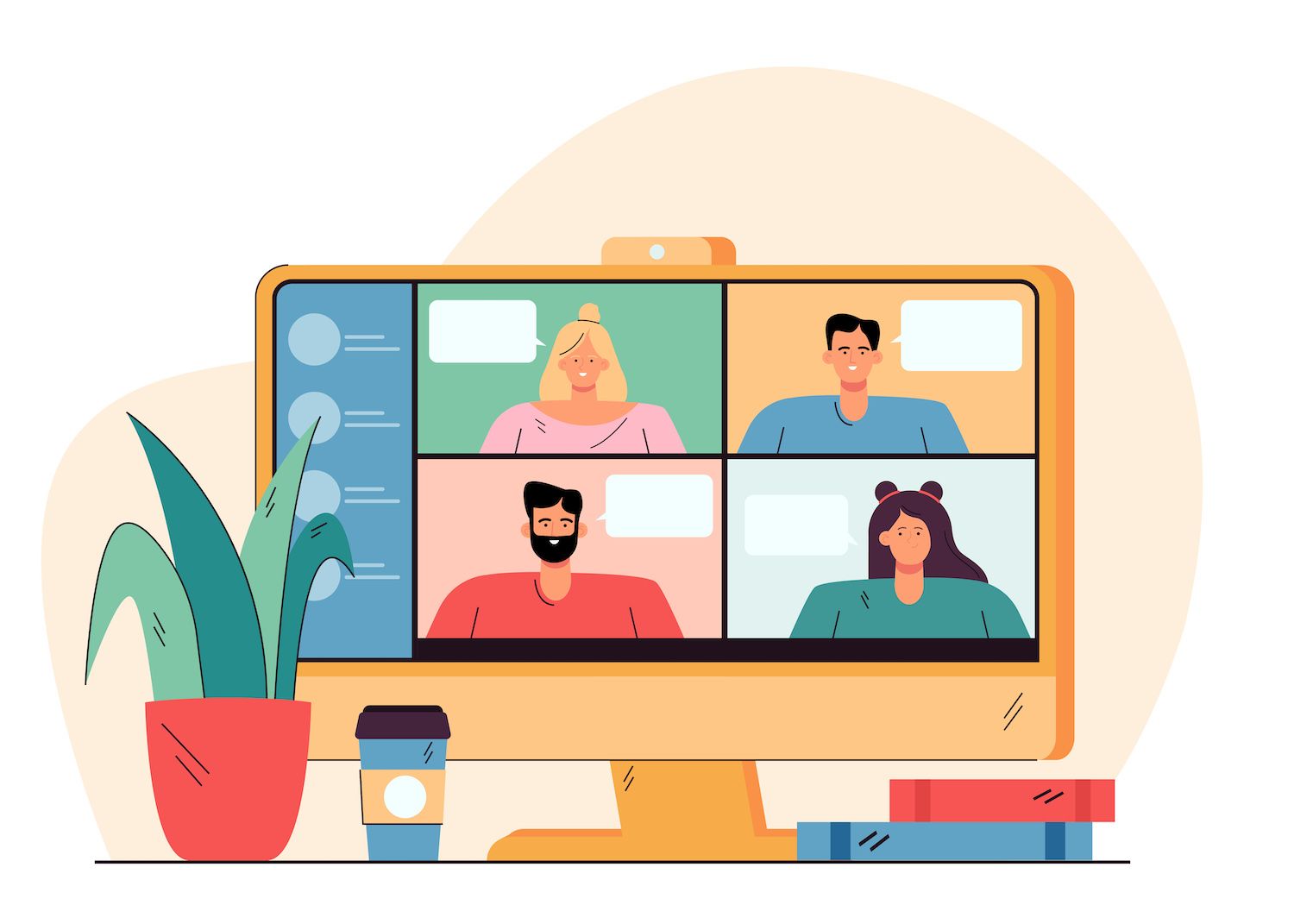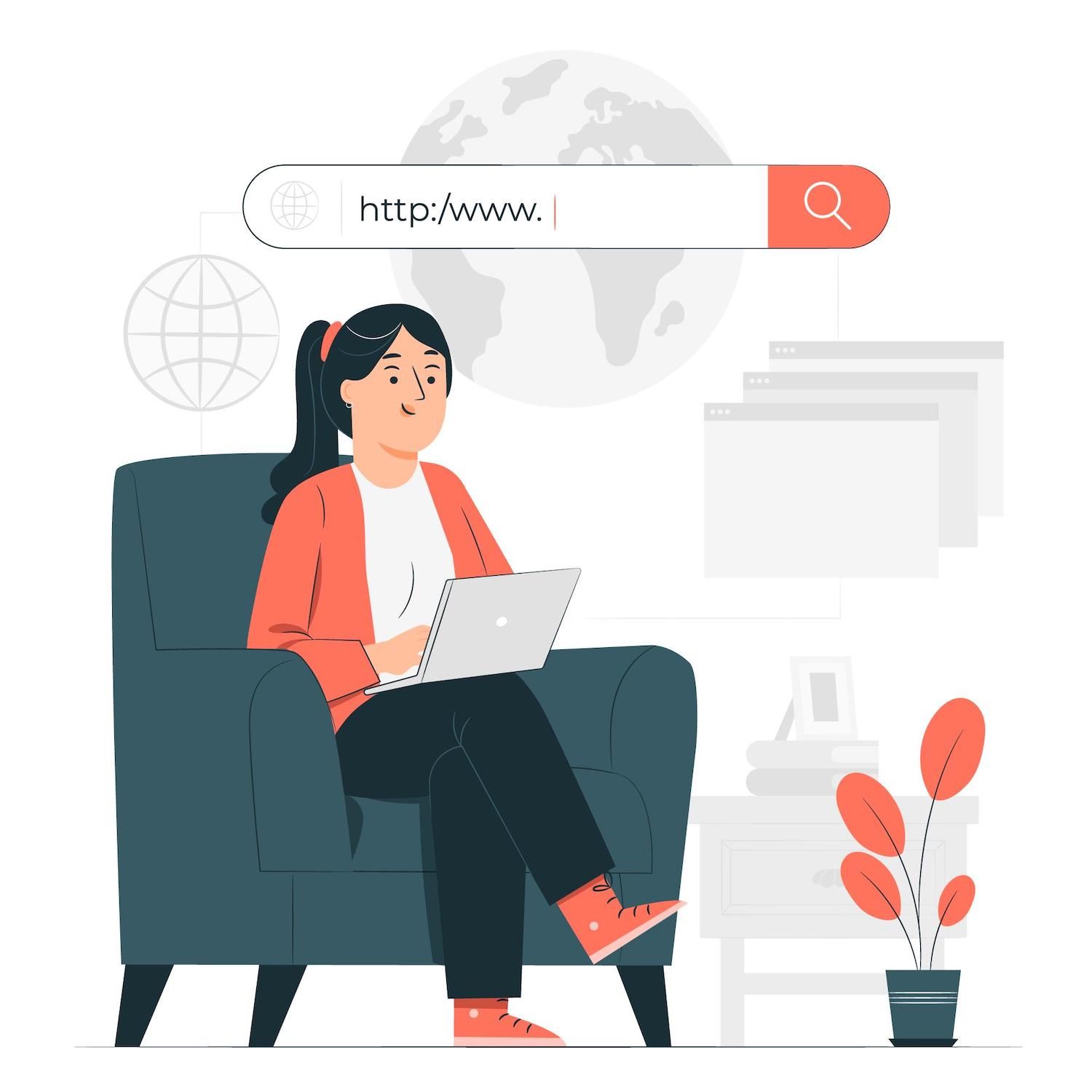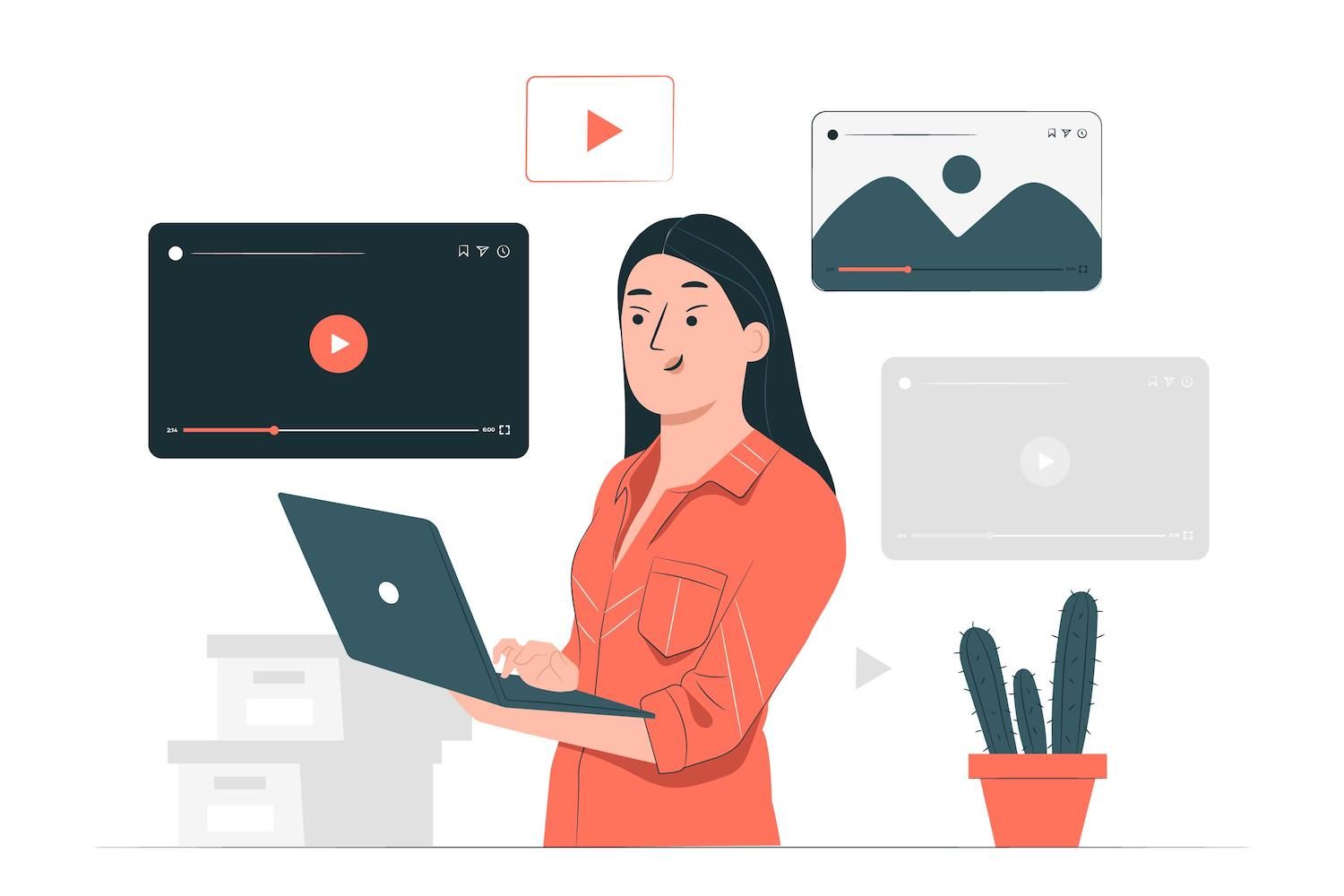What Is a Digital Entrepreneur? (And how do you become one!) |
What are the experiences of Doug Neill, owner of Verbal to Visual, who provides courses and memberships for students who are visual; Sadie Robertson Huff is the owner of Live Original, who has podcasts, an app as well as hosts programs for women in their 20s looking for deeper religious and spiritual development as well as Ashley Fox, owner of The Wealth Builders Community, that offers memberships to people who want to make a difference. are in the same boat? All three are digital entrepreneurs.
The world is constantly changing and develops, so do the business world. If you've got an amazing idea, want some time at your own pace and enjoy a flexible schedule, then becoming an entrepreneur who is digital might be the perfect fit for you.
What we'll discuss within this piece:
- What is a digital entrepreneur is.
- Digital entrepreneurs in various types.
- The perks of being a digital entrepreneur.
- How do you become a digital entrepreneur.
((toc))
What exactly is an entrepreneur in the digital space?
Digital entrepreneurs are people who operates their business on the internet. There is no specific type of digital entrepreneur. They could be anything from an online course creator, or virtual assistant to being a blogger or podcaster. Digital entrepreneurs are able to sell services like business coaching, digital products like e-books, and physical items such as candles. There are many opportunities.

A digital entrepreneur typically requires no fancy tools; you might only need an laptop. Social media can be used to build awareness about your business, create an online presence, and then use email marketing to nurture and build a relationship with your audience. One of the benefits of digital business is that you could earn as much money as you earn in a traditional business, but without the overhead of physical requirements like storefronts.
Digital versus traditional entrepreneurship
What separates a digital entrepreneur from an traditional entrepreneur is the location they work. Traditional entrepreneurs operate in a physical location for example, a shopfront or pop-up shop. There are benefits and drawbacks for each.
The biggest upside for the digital entrepreneur is that they do not need a lot of funding for their venture (you don't require external funding to begin and you can start a business without any capital investment your company) and their costs are fairly low. The main challenges of being a digital entrepreneur are:
- You compete against the entire globe (instead of the geographical region you reside in)
- It is necessary to be more diligent in building trust and a reputation
- Customers who are interested in purchasing your product can't view the product on their own and must rely on reviews.
- Digital entrepreneurs might be having a difficult time "turning off" and establishing business times for themselves as they work at any time and anywhere...even on their couches, which could lead to burnout.

Traditional business owners can utilize digital tools too, for instance, they can use social media platforms to raise awareness about their business. If they've got a physical storefront, they also have an advantage with foot traffic -- someone passing by, seeing the stunning red dress displayed on display and contemplating, "I have to have that !"
Traditional business owners also establish business hours so may be less likely to be exhausted. However the main disadvantage of being a traditional entrepreneur is that they need more money for the establishment of their own storefront and have higher costs to maintain their business than those who are digital.
Digital entrepreneurs of various types
As you can imagine, there are a myriad of examples of what digital business could look like, particularly when new technologies and tools are released, which means that the possibilities are limitless. There aren't any mutually exclusive examples either; a lot of digital entrepreneurs mix these examples in order to expand their services. Here are some common types of digital entrepreneurs.

Community Hosts
We know a thing or two about building an online social network. One of the best ways digital entrepreneurs can build an online community is by sharing their passion. For instance, ArtSnacks Mix built around painting with joy and the Outwild Hub. Hub is a community for outdoor enthusiasts who want to make outdoor activities a bigger part of their lives.
Communities are becoming thriving digital businesses and we're experiencing them expand to 6, 7-, and even eight-figures!
Digital entrepreneurs can earn cash from their communities through the creation of a membership fee to the group. Additionally, they can host live events, launch an application with a brand name, and develop a training course to only offer to customers.

And there are a ton of types of internet communities that you can choose from. These are a few examples:
- Mastermind group: Members gather to share knowledge and expertise to transform their business or lives.
- Group coaching is a group led by a coach that brings members together for an experience of change (e.g. the holistic wellness Coach ).
- Micro-community: You don't require the support of a huge community to make a big difference. It's just 30 members or less, who are dedicated to learning about a particular subject, interest, goal, or passion.
- Community of Content Members get together to create and/or to learn to create content and to share their knowledge.
- Community for brands online The type of community experiences member-led growth by people who are enthusiastic to discuss about a brand or product. Take, for example, the QuickBooks community. It is a space that allows users of the product to get the knowledge they need. Another great instance of a digital brand community is Adriene Mishler (who started Yoga together with Adriene on YouTube). Her goal was to create a community that would help her 10 million+ viewers get more involved in the practice of Yoga and to connect with other people which is why she started her own community called the Find What Feels Good (FWFG) Kula Community.

Blogger
If you're passionate about writing and have something to say you should consider starting a blog. It could make a good transition into online entrepreneurship. Once you've found your niche and picked a name for your website (make sure to use our Blog Name Generator) is the time to add worth. Bloggers like Seth Godin and Neil Patel offer a wealth of information in their marketing advice for their followers.
Contrary to popular opinion there is no need for a ton of traffic to monetize your blog. You do require an action plan (because your blog isn't your diary). It is also important to remain persistent and be patient.
Bloggers are able to earn cash in numerous ways, such as:
- affiliate marketing: When you mention the products you sell on your blog, when someone clicks on a brand-approved tracking link, you may make commissions.
- Advertisements: If you permit companies to promote their products through your website, you are compensated. Ads can be paid per ad or pay-per-view (also known as revenue per mille - RPM ).
- sponsorships When you're getting enough traction, businesses can offer to give you a payment for the content for their blog.
Bloggers also make money by selling a course ebook, book, or other merchandise on their blog.
The methods to create written content are always evolving and some people opt to publish content on platforms such as Twitter or LinkedIn instead of the traditional blogging platform.

Podcaster
It's never been more simple to create and develop a podcast! There are a lot of big name podcasts that are making money from podcasting, like "Armchair Expert," "Call Her Daddy," "Office Ladies" and "Freakonomics Radio." ."
Even as you're getting started in building a fan base that is enthusiastic about your work, you may make money through podcasting. As with blogging, it's important to discover your audience (not simply something you're famous for, however something that you are passionate about) You should also have a good name (use the Podcast Name Generator) Create an outline for when you will release new episodes, driving the audience to engage, as well as arranging guests to speak. Keep in mind that growing your audience requires patience. Keep your patience and be constant.
Podcasters can make profits through:
- Paid communities: Subscribers pay for access to premium content like videos, Q&As with celebrities, access to earlier to episodes, and private group discussions. Some podcasters monetize with communities by offering tiered memberships.
- Create courses: If your podcast offers educational content or helps listeners learn new skills, creating a course is a great opportunity to make money through your podcast. Take a look at Gretchen Rubin, who has a self-development podcast, "Happier with Gretchen Rubin." Her self-improvement courses are self-paced. courses that match the theme of her podcast, for instance "Outer Order and"Inner Calm," and "30-Day Relationship Challenge." ."
- Affiliate marketing: In the use of affiliate marketing on podcasts, hosts get a commission every when a listener buys a product or service that is mentioned in the episode. This is recorded by using a discount coupon (members are usually offered 10-15% off products or services that gives them an extra incentive to purchase ).
- Sponsorships: Do you remember the commercials which pop up when you're listening to your podcast? That's a sponsorship. These differ from affiliate marketing since you get paid just to mention the brand (e.g. the flat cost to talk about them over seven shows) regardless of whether your viewers never pay one cent for the brand.
- Live events: A number of podcasts that are popular, such as "Giggly Squad," have built up an enormous fan base that they go to live shows. Even if your audience isn't quite as large, think about holding a local live event at a brewery, restaurant, or even a bookstore.

YouTuber
YouTube is the world's second-largest search engine (and owns by Google- the biggest), and top YouTube stars such as PewDiePie, Markiplier, and Like Nastya earn anywhere from between $28 million and $38 millions per year!
There's plenty of competition on YouTube (over 720,000 hours of video posted every single day) however, the key for building a YouTube following is having a niche that is strong and producing content within the area of. Just like with blogging and podcasting it takes a lot of grit and perseverance to create a fan base on YouTube.
Here's the way that YouTubers make income :
- Advertisements: To be approved for ads, you need to meet an upper limit of at least 4,000 hours of watching in the last 12 months as well as 1,000 subscribers. This isn't the best way to make money, however this is the way YouTubers who have huge followings make money.
- Members of channels: Just like with ads, you'll need be a subscriber of more than 1000 and be in the YouTube Partner Program. You can then offer member benefits such as badges, emojis as well as live chats and many more.
- Affiliates YouTubers receive a commission every when a viewer purchases a service or product that is mentioned in the video (affiliate links located within the descriptions of videos).
- The merchandising: If you have a recognizable brand and you are able to sell merchandise.
- Services to sell: Let's imagine you're a fitness trainer, you could give tips for fitness on your YouTube channel, and then connect it to your fitness coaching business.
You can read more about the amount YouTubers make per video on this page .

Consultant
When you're an experienced expert in the field, then consulting can be a great method of earning money for the work. Your expertise can be offered to businesses that are in need and post your articles through LinkedIn and YouTube as a type of marketing. Having some solid testimonials from previous clients and statistics to prove your worth make you a credible consultant. Consultants can work either by hourly retainer, or by deliverables which can be a lucrative way to earn thousands of dollars per hour for their services.
Consulting ranges from providing the client with information to helping clients permanently improve their business. It can aid organizations in their sales, marketing, informational technology, emotional intelligence, diversity and inclusion efforts, and even with reducing conflicts.
The most appealing aspect is that digital entrepreneurs are able to consult from anywhere around the globe.

Subscriptions
Digital entrepreneurs are able to create an online subscription company and provide subscriptions. The model is very similar to the online community, but is less active; customers consume content, software, or even products you've designed or licensed. Think of software companies like Dropbox and Zoom that provide media like Hulu and Netflix and others which use physical goods like HelloFresh - they've built empires around subscription services.
This is how online marketers can take advantage of subscriptions:
- The business of premium content Paying customers every month, and have access to content (e.g. fitness videos ).
- A product that is monthly: Certain businesses offer monthly subscriptions to essentials like razors and soaps to more decadent items like wine and chocolate.
The best part is that this is potentially regular revenue, if you create your idea for a repeat business to make sense for your business.
Newsletters can growing to be a major part of the economy of subscriptions.

E-commerce
E-commerce isn't just a fad It's growing exponentially and expected to surpass $3.6 trillion in value in 2024. The best part about online shopping is that it's not just meant for big corporations. It's for everyone, including entrepreneurs in the digital space.
There are numerous platforms to sell your products on such as Amazon and Alibaba, or if you're creative, consider Etsy. Additionally, there's Shopify for digital entrepreneurs looking for a platform on which they can set up an online store they manage.
The choices for products that digital entrepreneurs can sell are unlimited, from physical goods like footwear, mushrooms lamps and artwork, as well as digital goods like printables, e-books, apps (which is projected to reach $755.5 billion in 2027), and online courses. Digital products are attractive since they are scalable to an infinite extent they generate revenue recurring and are easily automated.
Course Creator
The truth is that learning online has increased exponentially in the past few years. With online courses, there's never been a better time for digital entrepreneurs to transform their experience and skills into a fantastic learning experience that anyone in the world is able to take. Courses are so popular that we witnessed a podcaster and an author on Mighty sell 5,000 seats to an $997 course within 10 days.
The online courses you offer may cover everything starting from 2D animation, to learning to draw. The courses can be recorded (asynchronous learning) or taught in live (synchronous learning) and both can be expanded, as in live teaching it is possible to teach hundreds of students.
We're certainly not suggesting that creating courses is simpleit's important to identify an area of interest, create your course and advertise it. Successful niches have the advantage of being popular and in which people are currently enrolling in courses, and are willing to spend money on.
Some of the best profitable online course niches are B2B, entrepreneurship, fitness, marketing, and wellness.
Also, browse our selection of online courses concepts below !

Host an event online
One of the best things about a virtual event is the ease of use for the host as well as those who attend. It's not necessary to think about your venue's capacity, or the logistics of parking, or obtaining an alcohol permit, and participants don't have to be concerned with travel time or even their dress code.
There's plenty of space for fun with virtual events as long as there's a clear message that is able to motivate and inspire participants to take part. It's about educating people on the, what, and how to get the most value from the experience participants will receive. This is known as the Big Purpose.
The next step is to identify the Ideal Member , by asking:
- Where are they from?
- What is it they are concerned about?
- What issues are they having trouble with?
- What kind of transformation could make them come alive?
The downside of virtual events is that connecting participants doesn't happen as smoothly as it does in-person. That's why it's important to make connections like:
- Breakout spaces
- Group projects using the whiteboard
- Open text questions and discussion
- Q&A-session
It is possible to host events at any interval between yearly and several occasions per month. The sewing community Topstich Makers hosts weekly sew-alongs for people to work simultaneously working on projects.

Why do you want to be a digital enterprise?
Clearly what you can offer as a digital entrepreneur can be endless. However, if you don't offer something worth it is possible to be thinking what else you can do for you?
Flexibility
In contrast to a traditional 9-to-5 job, becoming an entrepreneur implies that you can dictate your schedule. You are able to work 4 days a week if you'd like or even take a longer lunch, all without asking permission. Digital entrepreneurs give you even more freedom as an entrepreneur in the traditional sense since you're not tied to a physical location. Digital entrepreneurs can take advantage of working from anywhere across the globe, from Boston all the way to Bahamas and living the"digital nomad" lifestyle.
Scalability
Growing your business requires growing your customer base and revenue at a faster rate rather than simply increasing your cost. It's not a one-size-fits-all approach for expanding your business. It is dependent on the current stage of your company. But, when you have an established foundation and build your long-term and sustainable plan for expansion there's no limit to what you can achieve!
Amazon is a prime example of a scalable and infinitely expanding tech company. It began as the first bookstore turned into an online marketplace that expanded thanks to the network effect- getting more valuable with each user. It's now worth $1.8 trillion.
When companies think about the possibility of scaling, their thoughts turn to the courses. With a projected worth of $62 billion in 2027, there's good reason that this original scalable online product is still the most popular choice for scaling. Scaling for a coach may mean the only offering of 1:1 coaching in order to offer engaging and interactive courses.
One thing entrepreneurs are likely not to think of for scaling their business are virtual events. The hardest part is actually designing and hosting your very first virtual event. However, once you've got over the hump and have received the feedback of your guests and guests, you'll be able to refine it and host further. Plus when your virtual event is high-value or entertaining (or both) the attendees are likely to pay for and come! Choose a platform for virtual events that allows you to create and scale quickly.

Accessibility
Not only can you work at any time, but you can be able to connect with any person in the world. Contrary to traditional entrepreneurs who only has access to people who live in their area, online businesses can be found in any area.
If you have a high-quality digital marketing plan it is possible to reach your intended audience. Make use of social media in your favor write blog articles that will get the attention of your intended people's attention through SEO (search engine optimization). (SEO) and provide relevant content for your audience, and use emails to draw many more visitors to your site.
Adaptability
Being able to adapt to the market's changes can be helpful, as it keeps your creativity flowing while exploring new ideas so that you're not bored. If you notice that there's not enough interest in your products, you can quickly adapt your offerings to your target customers' needs. In contrast to large corporations it is possible to easily alter or alter your offerings and prices without losing too much time and money.
It's obvious that you don't want to have shiny object syndrome with regards to business (offering the newest and best only because it's popular) However, you want to listen to what's in demand.

Profitability
We're not saying the moment you decide to venture into business you're going to make $100k within the first year however, since your costs are low your potential for earnings are essentially limitless -Cha-ching.
You must perfect your craft, knowing whom you're selling to (having a niche is super valuable -- that way you're less distracted and aren't selling to everyone) as well as mastering the basics of business while transitioning from an artist to an business owner, and focusing on your mindset (self-doubt has a nasty way of creeping up on your). The idea of starting your digital venture in a part-time job could be the most effective route to gain more knowledge and experience before jumping in head first.
The earning potential for entrepreneurial ventures online is unlimitable, it's more often people who have the freedom to work that decide to pursue entrepreneurship in the first in the first. It could be time with family and friends or more travel time, making memories. It could also mean the time to yourself generally.
How do you become an entrepreneur in the digital space
The best thing about being a entrepreneur is that it looks slightly different for everyone -- where they run their business and how they manage their company, and who they are interacting with. But, when starting out there are some common steps everyone has to do to become a digital entrepreneur.
1. Set the foundation
Like building a house, creating a company requires a solid foundation to work from. Every business starts with an idea or a idea or an inspirit.
global businesses such as Starbucks started from an idea. Two teachers and a journalist pooled the money they had saved to launch the Seattle-based business of coffee beans and created what's now among the top famous cafes across the globe.
Most often, business concepts stem from a requirement you've faced or the gap that you observe in the marketplace.
If you're still stuck there's another option to look at:
- Your area of expertise: Take stock of the areas you are knowledgeable about and what that you are knowledgeable about. Here on Mighty we frequently see people building thriving businesses around topics they're familiar with. Digital entrepreneur Ryder Carrol, whose approach to bullet journaling has led to a movement, a course, book and a community centered around the visual organizational.
- Your strengths: Starting with your strengths can be a fantastic method to be a successful digital business owner. In essence, you should work in your area of creativity, not those things that are really difficult to accomplish (e.g. Don't be coach if you're people abilities aren't the greatest). ).
- Passion: Do you know the subjects that you aren't able to get enough of or the topics you can't stop talking about? Do you have any hobbies that you enjoy doing just to have fun? All of the things are a sign of your passions.
Here are a few questions you can ask yourself for clarity on your venture in digital entrepreneurship:
- What can I learn about this topic?
- What issues have I successfully solved on my own?
- What problems have I succeeded in solving for others?
- What lessons could I impart to anyone who's just beginning to learn?
- What is the reason I would like to become a digital entrepreneur?
- What am I bringing to the discussion? What's my unique perspective?

2. Find your perfect customer
There's a saying that goes, "When you sell to everyone, you sell to no one." It's a fact. It's impossible to be everything to everybody, so you need determine whom you'd like to help.
Also, you must think about, "What problems will I aid them with?"
The majority of people purchase products and services for a reason such as to find more inner peace, find a partner, or just be happier They're seeking a change.
What should you think about when it comes to your ideal customer:
- Geographic, demographic, and psychographic characteristics.
- Life transitions and states of mind (e.g. new parents, first-time homeowner, parents who are no longer in the nest, career pivots that ).
- Their dreams and hopes.
- Fears, misconceptions, and challenges from them accomplishing their goals.
It is possible to go further and do some market research, whether it's through a survey or group Q&A. Or an individual interview. Ask potential customers these questions for a deeper understanding of what they need:
- What issues are you currently confronting when using X?
- What are some struggles that you've faced in achieving X independently?
- What solutions or services have helped you with the issues you have faced?
- What services or products did you use that did not help you with your problems?
3. Test out your ideas
When you've got a better understanding of what the ideal customer desires and requires, you can now design a product or service that will meet.
If the person you want to target wants to find an intimate partner, but they struggle with their confidence and making the decision to go out, brainstorm all the ways you could help them.
This could be:
- A web-based event that allows singles looking to mix.
- An online course that teaches individuals how to leave their comfort zone to connect with new people to find a partner.
- A matchmaking service that is 1:1.
- A group coaching program for women who are single. Every week there is a new topic about loving yourself and finding your ideal partner.
- A book about developing self-confidence and how it helps throughout their life, even love.
When you've had the chance to come to as numerous concepts as you can think of, you're now ready to try these ideas with your prospective clients. See which ones they find interesting versus which ones they're not too thrilled with.
Check out our Corporate Name Generator to create an outstanding company name.

4. Determine the business needs
It's not necessary to get into the nitty-gritty here however, just as traditional business owners, entrepreneurs who are digital still have to follow the rules and guidelines of ownership in a business.
Basically, you need to understand how to make sales and collect the appropriate taxes and then report the results to the government. It is also necessary to figure out the proper way to invoice and claim taxes for the year's end. It is possible to ask fellow digital entrepreneurs how they invoice (which software they use) as well as use accounting software or accountants to assist with tax issues.
5. Make sure marketing is working in concert
After you've put everything set up and you're ready to put yourself out there! You don't necessarily need an online presence (especially when you're selling products) however it will make the appearance of your business more credible. There's no question as to the need to promote your company through social media. It's completely free and easy to create content to increase and expand your audience. It's a matter of selecting the best ones- go in the places where your target audience hangs around the most.
Next, you could establish your email marketing. Another way to increase the number of emails you receive is creating a freebie (also known as a lead magnet) to ensure that in exchange for it you collect email addresses.
Or start a community! We find that a powerful community eliminates the necessity to have a conventional sales funnel, and instead becomes a community-based flywheel company that grows itself.

Digital entrepreneurs require the right platform
Digital entrepreneurship is vast however we would like to see you get inspired to study the ever-growing field of.
If you're thinking about digital entrepreneurship to create the content you want to share, create a community, courses, events, and/or business, then build with Mighty! It's a complete digital entrepreneurship platform that lets you livestream, conduct live or pre-recorded courses, host discussion forums, as well as live events that allow participants to communicate and chat with one other.
You can also monetize in 135 different currencies and accept payments through the platform.
